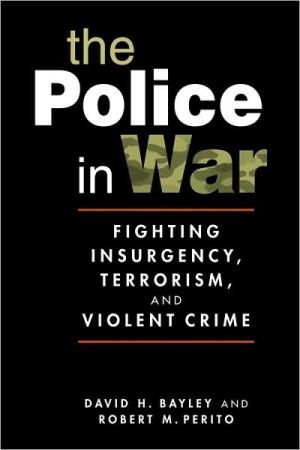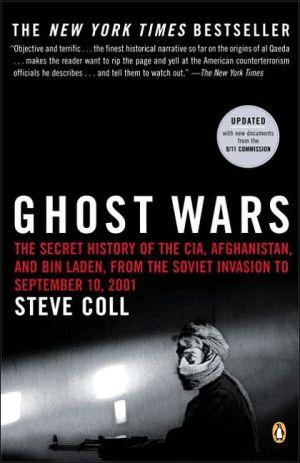The Police in War: Fighting Insurgency, Terrorism, and Violent Crime
"Frustrated efforts in both Iraq and Afghanistan give urgency to the questions of how to craft effective, humane, and legitimate security institutions in conflict-ridden states - and whether legitimate policing can in fact be developed in the midst of insurgency and terrorism. David H. Bayley and Robert M. Perito confront these questions head on." Against the backdrop of failed US attempts to train police forces in Iraq and Afghanistan, Bayley and Perito explore the role of the local police...
Search in google:
"Frustrated efforts in both Iraq and Afghanistan give urgency to the questions of how to craft effective, humane, and legitimate security institutions in conflict-ridden states - and whether legitimate policing can in fact be developed in the midst of insurgency and terrorism. David H. Bayley and Robert M. Perito confront these questions head on." Against the backdrop of failed US attempts to train police forces in Iraq and Afghanistan, Bayley and Perito explore the role of the local police as an element of successful peace operations and counterinsurgency campaigns. Their analysis ranges from the specifics of training to the larger arena of broad institutional reform. Equally practical and grounded in theory, their work offers crucial guidance on the role and training of local police forces that must grapple daily with the challenges of ongoing conflicts. Library Journal Bayley (Sch. of Criminal Justice, SUNY-Albany; Changing the Guard: Developing Democratic Police Abroad) and Perito (senior program officer, U.S. Inst. of Peace; Where Is the Lone Ranger When We Need Him?: America's Search for a Postconflict Security Force) examine the role of police and police training in stabilization programs in countries that have experienced acute humanitarian crises and severe internal conflicts. Although the book pays particular attention to operations in Iraq and Afghanistan, its broader focus is on problems and issues that have troubled U.S.-led interventions in such countries as Somalia, Haiti, and the Balkans. The authors examine the U.S. military's evolving counterinsurgency doctrine, which seeks to develop workable stabilization missions by training effective local governmental institutions and their coercive police entities. Of course, police-training and stabilization missions date back to the failed Vietnam-era programs, but the current police-training programs of the U.S. military are more extensive than those that existed in the 1960s and 1970s and have now been woven into peace-building missions that follow U.S. military interventions in the developing world. VERDICT The book provides practical advice on how police-training missions should be organized and how they should provide for security of individual citizens in order to sustain their long-term legitimacy. Recommended for those with this specialized interest.—Nader Entessar, Univ. of South Alabama, Mobile
Introduction 11 Getting It Wrong: Iraq and Afghanistan 52 What We Should Have Learned 333 The Role of the Police in Controlling Violence 514 Balancing Force and Legitimacy 675 Fundamentals of Police Training 836 World Practice in Police Training 1057 Institutional Reform: The Larger Arena 1278 Getting It Right: Recommendations for US Policy 151List of Acronyms 165Bibliography 167Index 183About the Book 195
\ Library JournalBayley (Sch. of Criminal Justice, SUNY-Albany; Changing the Guard: Developing Democratic Police Abroad) and Perito (senior program officer, U.S. Inst. of Peace; Where Is the Lone Ranger When We Need Him?: America's Search for a Postconflict Security Force) examine the role of police and police training in stabilization programs in countries that have experienced acute humanitarian crises and severe internal conflicts. Although the book pays particular attention to operations in Iraq and Afghanistan, its broader focus is on problems and issues that have troubled U.S.-led interventions in such countries as Somalia, Haiti, and the Balkans. The authors examine the U.S. military's evolving counterinsurgency doctrine, which seeks to develop workable stabilization missions by training effective local governmental institutions and their coercive police entities. Of course, police-training and stabilization missions date back to the failed Vietnam-era programs, but the current police-training programs of the U.S. military are more extensive than those that existed in the 1960s and 1970s and have now been woven into peace-building missions that follow U.S. military interventions in the developing world. VERDICT The book provides practical advice on how police-training missions should be organized and how they should provide for security of individual citizens in order to sustain their long-term legitimacy. Recommended for those with this specialized interest.—Nader Entessar, Univ. of South Alabama, Mobile\ \








